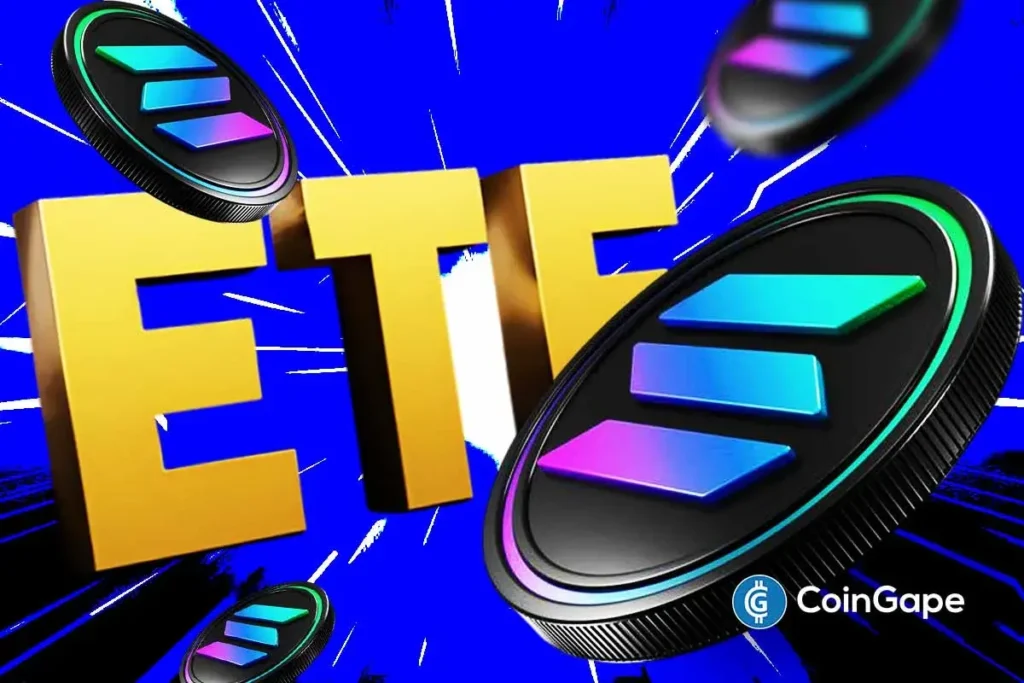Crypto Stakeholders Urge SEC to Approve Liquid Staking Tokens for Solana ETFs
Recently, prominent players in the cryptocurrency sector, including Bitwise and VanEck, have made a concerted effort to influence the U.S. Securities and Exchange Commission (SEC) toward the approval of liquid staking tokens (LSTs) for exchange-traded funds (ETFs) focused on Solana. In a public letter, these companies, along with Jito Labs, the Jito Foundation, the Solana Policy Institute, and Multicoin Capital, stressed the significance of enabling LSTs within ETFs to enhance opportunities for investors in the burgeoning digital asset landscape.
The Push for Approval of LSTs
The letter penned by these stakeholders comes as a response to various Solana ETF filings submitted by major asset managers, including industry giants such as Fidelity, Franklin Templeton, Grayscale, and 21Shares. These filings, which are anticipated to play a critical role in ETF structure by June 2025, propose to create Staked Exchange-Traded Products (ETPs) that can actively earn validator rewards on Solana. Notably, VanEck expressed that existing LSTs like JitoSOL could simplify the staking process for Solana ETFs, marking a significant shift in how digital assets can be managed within the regulatory framework.
Defining Liquid Staking Tokens
Liquid staking tokens are introduced as valuable instruments that represent stake-backed assets. When users stake their Solana to smart contracts linked to publicly staked pools, an LST is issued. This token not only stands as a formal representation of the staked assets but also encapsulates any rewards that have been generated. The appeal of including LSTs in Solana ETF structures lies in their ability to allow issuers to gain staking yields without having the burden of managing validators or navigating lengthy unbonding periods. By participating in liquid staking, token owners can contribute to the network’s decentralization while retaining liquidity and accessibility of their assets.
Advantages of the Solana ETF Staking Model
The proposed Solana ETF model offers a refreshing approach compared to traditional staking systems. Users are relieved from managing cryptographic keys and facing protracted redemption times, transforming the staking experience into a more user-friendly interaction with digital assets. This innovative architecture allows Solana-based LSTs, like JitoSOL, to operate on a reward-bearing structure where the redeemable value of each token gradually increases over time. For instance, a single JitoSOL could potentially redeem for a higher value, such as 1.08 SOL after a year, thereby reflecting the accumulated validator rewards.
Regulatory Precedents and SEC Guidance
The SEC previously set a precedent for staking within U.S. crypto ETFs when allowing the launch of the REX-Osprey Solana + Staking ETF (SSK), which employs JitoSOL as its primary staking mechanism. Even though this ETF is structured differently from conventional 1933 Act ETPs, Bitwise and VanEck contend that the underlying principles should apply across the board. They referred to the SEC’s Staking Guidance released in May 2025, which clarified that both solo and delegated staking do not constitute securities transactions. This definition distinguishes staking activities as administrative rather than entrepreneurial, thereby lending further credence to the acceptance of LSTs within regulated ETF offerings.
Economic Implications of Excluding Staking
In their letter, Bitwise and VanEck articulated the economic ramifications of excluding staking opportunities in ETF structures. They argued that omitting staking could lead to diminished returns for investors and increased operational costs. This is particularly relevant as the demand for yield-enhancing investment vehicles grows in an evolving landscape. The introduction of liquid staking tokens seeks to not only maximize yields but also ensure that investors have substantial participation in the growth of the digital asset ecosystem, mitigating risk without sacrificing potential rewards.
Conclusion
The collective advocacy for the SEC to approve liquid staking tokens for Solana ETFs highlights a pivotal moment in the intersection of cryptocurrency and regulatory frameworks. As stakeholders appeal for change, the approval of LSTs could revolutionize the manner in which digital assets are staked and shared among investors. In an environment marked by rapid innovation and shifting regulations, the focus on enhancing investor opportunities through liquid staking could pave the way for broader adoption of cryptocurrency-related investment products, fostering growth and trust in the sector. As the landscape continues to evolve, attention will remain on how regulatory bodies like the SEC respond to this compelling push for change.


